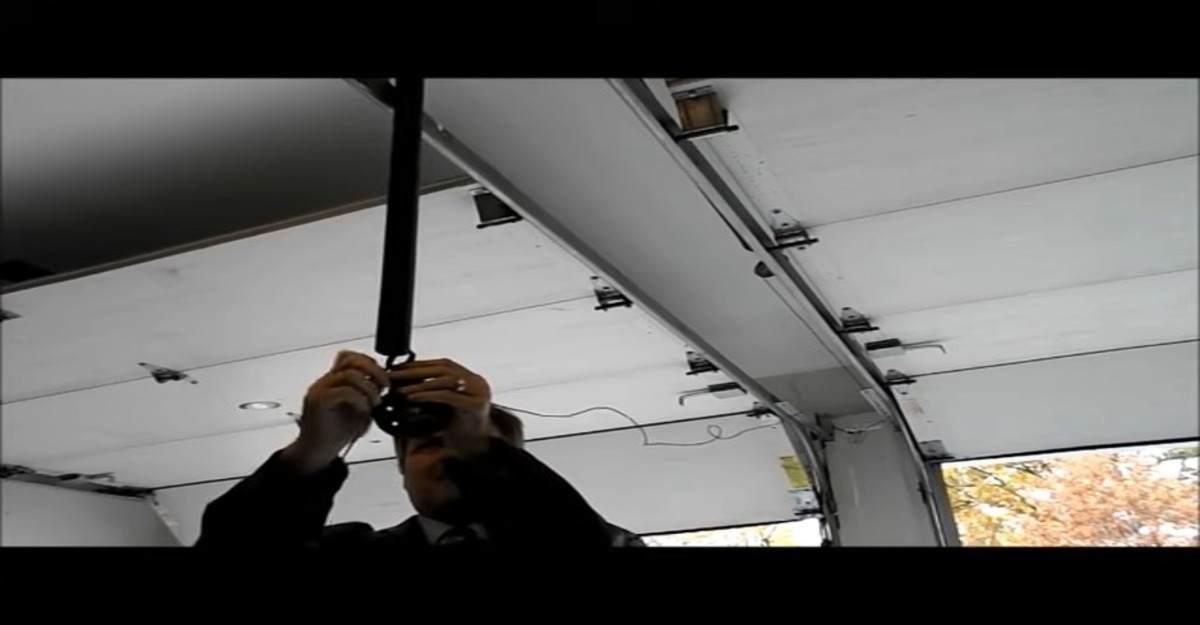Affiliate Disclosure: We may earn money or products from the companies mentioned in this post.
Garage doors are a crucial part of our homes, providing security, convenience, and protection for our vehicles and other belongings. However, many homeowners may not realize that the spring system is one of the most critical components of a garage door. Garage door springs support the door’s weight and allow it to open and close smoothly. Without functioning springs, a garage door can become dangerous and inoperable. But how long do garage door springs last, and when must they be replaced?
The typical lifespan of garage door springs can vary depending on the spring type and the use frequency. Torsion and extension springs typically last around 10,000 cycles, while high-cycle springs can last up to 100,000 or more. Rust-resistant springs are a good option for homeowners in humid or coastal areas. Regardless of the type of spring you have, it’s important to have them inspected regularly and to replace them promptly when signs of wear or damage are present.
What are the Signs that Garage Door Springs need to be Replaced?
As a homeowner, it’s important to recognize the signs that your garage door springs need to be replaced.
1. The garage door does not open or close smoothly
One of the most obvious signs that your garage door springs need to be replaced is if your door no longer opens or closes smoothly. The springs provide the necessary tension to help lift the door. If the springs are damaged or worn out, they will not be able to provide the necessary tension, making it difficult for the door to move up and down.
If your garage door is moving slower than usual or jerking when it opens or closes, it may be time to replace the springs.
2. The garage door is making loud noises when opening or closing
Another sign that your garage door springs need to be replaced is if it is making loud, unusual noises when opening or closing. The springs are under much tension; if damaged, they can snap or break, causing a loud noise.
If you hear a loud popping sound when you open or close your garage door, one of the springs has likely broken. This is a sign that you need to replace the springs immediately.
3. The garage door appears unbalanced
The springs on your garage door are designed to keep it balanced as it opens and closes. If one of the springs is damaged or worn out, it can cause the door to become unbalanced. You may notice that the door appears to be crooked or that it is sagging on one side.
If the door is unbalanced, it can put additional strain on the garage door opener and other parts of the door, leading to additional damage.
4. The garage door springs are visibly damaged
If you notice that your garage door springs are visibly damaged, such as if they are stretched out or have visible cracks, it’s a sign that they need to be replaced. Visibly damaged Springs are more likely to break, which can be dangerous and can cause damage to other parts of the garage door system.
What is the Cost of Replacing Garage Door Springs?
The cost of replacing garage door springs can vary depending on several factors, including the type of springs, the garage door’s weight, and labor costs. On average, you can expect to pay between $150 to $350 for a single spring replacement. It’s essential to hire a licensed and insured professional to handle garage door spring replacement to ensure the safety of yourself and your property.
- Type of Springs: There are two garage door springs: torsion and extension springs. Torsion springs are more expensive than extension springs because they are designed to last longer and are more durable. Torsion springs can cost anywhere from $100 to $200 per spring, while extension springs can cost between $50 to $100.
- Weight of the Garage Door: The weight of your garage door can also affect the cost of spring replacement. A heavier garage door will require stronger and more durable springs to lift it. The stronger the springs, the higher the cost of replacement. If your garage door is heavy, it may require more than one spring to lift, adding to the overall replacement cost.
- Labor Costs: Labor will also affect the garage door spring replacement cost. The labor cost will vary depending on the company you hire and the extent of the damage. You can expect to pay between $75 to $150 per hour for labor. The total labor cost will depend on how long it takes to complete the job.
How Can I Make My Garage Door Spring Last Longer?
Garage door springs are prone to wear and tear over time, leading to malfunctions or even damage to the garage door system. That is why taking good care of your garage door springs is essential to extend their lifespan.
1. Proper Lubrication
Regular lubrication is essential for the smooth operation of your garage door. Over time, dust and debris can accumulate on the springs, causing them to wear out faster. To prevent this, lubricate your garage door springs at least once a year.
You can use a silicone-based or garage door lubricant to keep your springs in good working condition. One such product that you can use is the 3-IN-ONE Garage Door Lubricant. It is specifically designed to provide long-lasting lubrication and prevent rust and corrosion.
2. Balance the Garage Door
An unbalanced garage door can put undue stress on the springs, causing them to wear out faster. You can perform a simple test to balance your garage door properly. Close the garage door and disconnect the opener by pulling the release handle. Then, manually lift the garage door halfway up. If it stays in place, your garage door is properly balanced.
If it falls, it is unbalanced and needs to be adjusted. You can use a product like the Prime-Line GD 52238 Torsion Spring Winding Rods to adjust the tension of your garage door springs and balance the door.
3. Replace the Garage Door Rollers
The garage door rollers are another component that can affect the lifespan of your garage door springs. Worn-out or damaged rollers can cause the door to jerk or shake, putting additional stress on the springs.
By replacing the garage door rollers, you can reduce the strain on the springs and extend their lifespan. The National Hardware N280-347 V7601 Replacement Rollers are durable and easy to install, making them an ideal choice for DIY enthusiasts.
4. Install a Garage Door Opener with Soft Start and Stop
A garage door opener with a soft start and stop can help reduce the wear and tear on your door springs. These openers use a motor that gradually accelerates and decelerates the garage door, minimizing the stress on the springs.
The Chamberlain B503 Ultra-Quiet and Strong Belt Drive Garage Door Opener is a great option. It has a steel-reinforced belt drive system that operates quietly and smoothly, reducing noise and vibrations.
5. Regular Maintenance
Regular maintenance is the key to extending the lifespan of your garage door springs. Inspecting your garage door system periodically for any signs of wear or damage is essential. Additionally, you should tighten all the nuts and bolts, adjust the tension of the springs if needed, and clean the tracks and rollers regularly.
A product like the Clopay Pro Lube Synthetic Spray Lubricant can help protect your garage door from rust and corrosion and keep it functioning smoothly.
How Often do you Need to Lubricate Garage Door Springs?
The frequency of lubricating your garage door springs depends on how often you use your garage door. If you use your garage door multiple times daily, lubricate the springs every three months. Using your garage door less frequently, you can lubricate the springs every six months.
Additionally, if you notice any signs of wear and tear or hear any unusual noises coming from your garage door, it’s essential to lubricate the springs immediately.
How Do You Clean Garage Door Springs?
To clean garage door springs, you will need the following tools and products:
- Safety glasses
- Dust mask
- Latex gloves
- Soft-bristled brush
- Mild detergent
- Bucket of water
- Clean cloth
Follow these steps to clean your garage door springs:
- Wear safety glasses, a dust mask, and latex gloves to protect yourself from dirt and debris.
- Disconnect the power to the garage door opener to avoid any accidents.
- Use a soft-bristled brush to remove loose dirt and debris from the springs. Be gentle and avoid using excessive force, as this can cause damage to the springs.
- Prepare a mixture of mild detergent and water in a bucket.
- Dip the soft-bristled brush into the mixture and gently scrub the springs.
- Rinse the springs thoroughly with clean water.
- Dry the springs with a clean cloth to remove any excess water.
- Reconnect the power to the garage door opener and test the door to ensure proper operation.
Conclusion
They play a crucial role in your garage door’s smooth and efficient operation, so taking good care of them is important. While the lifespan of garage door springs varies based on usage and maintenance, on average, they can last between 7-12 years. However, by following some simple tips like regular maintenance, using high-quality products, and hiring a professional for repairs and replacements, you can extend the lifespan of your garage door springs.
If you notice any signs of wear and tear or malfunctions, it’s essential to address them promptly to avoid potential safety hazards and costly repairs. With proper care and attention, your garage door springs can last for many years, providing convenience, security, and peace of mind.


